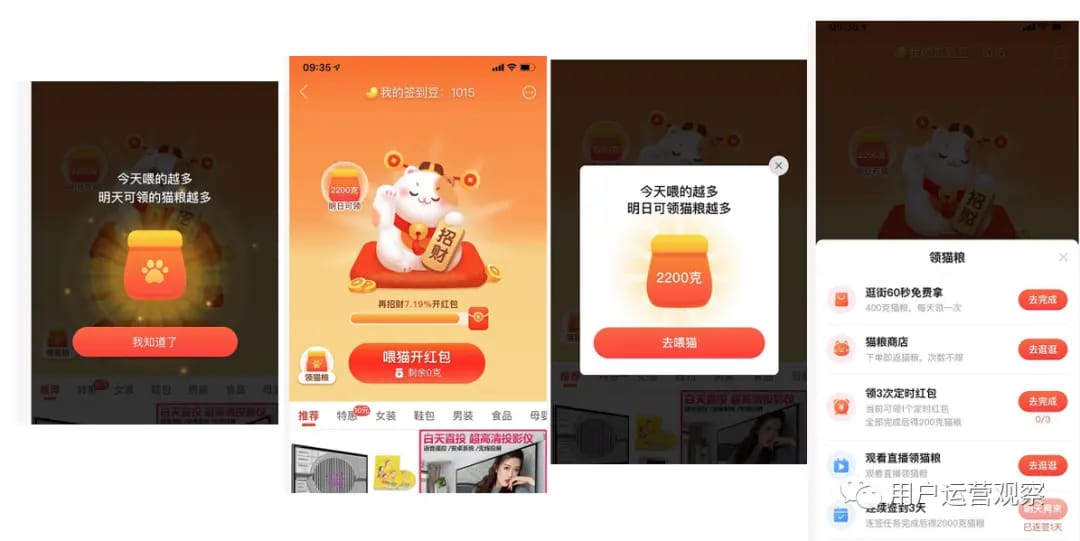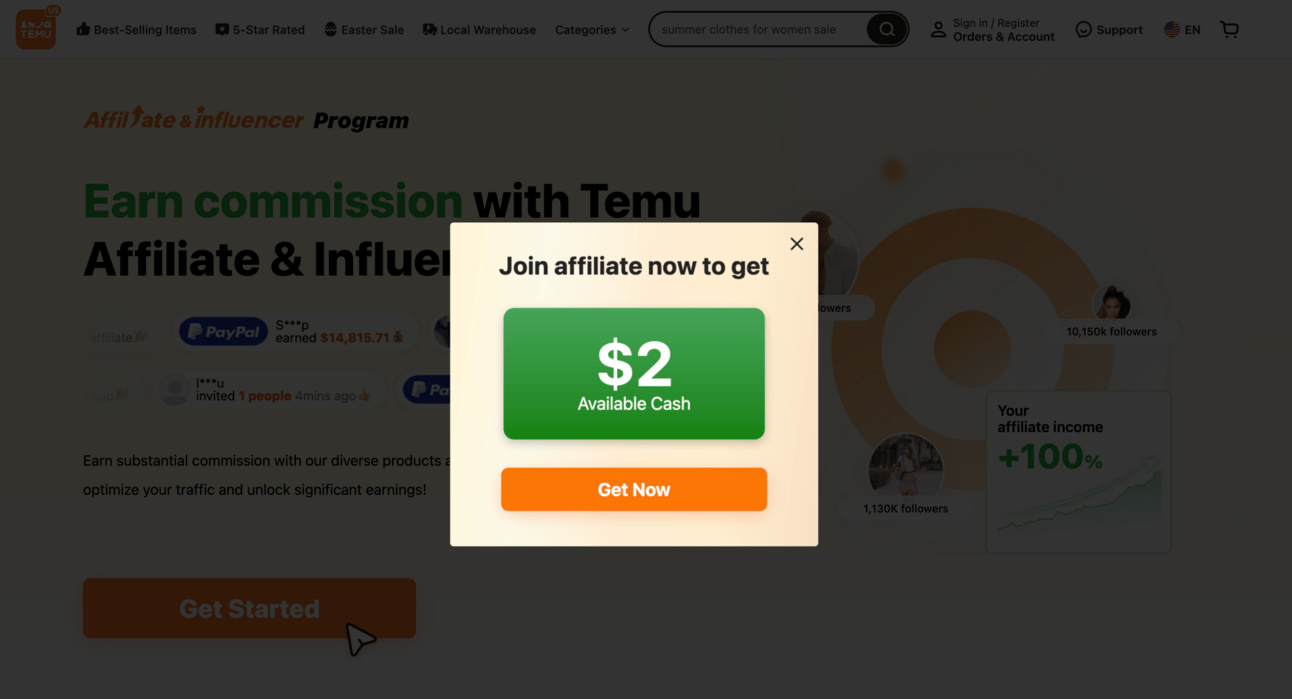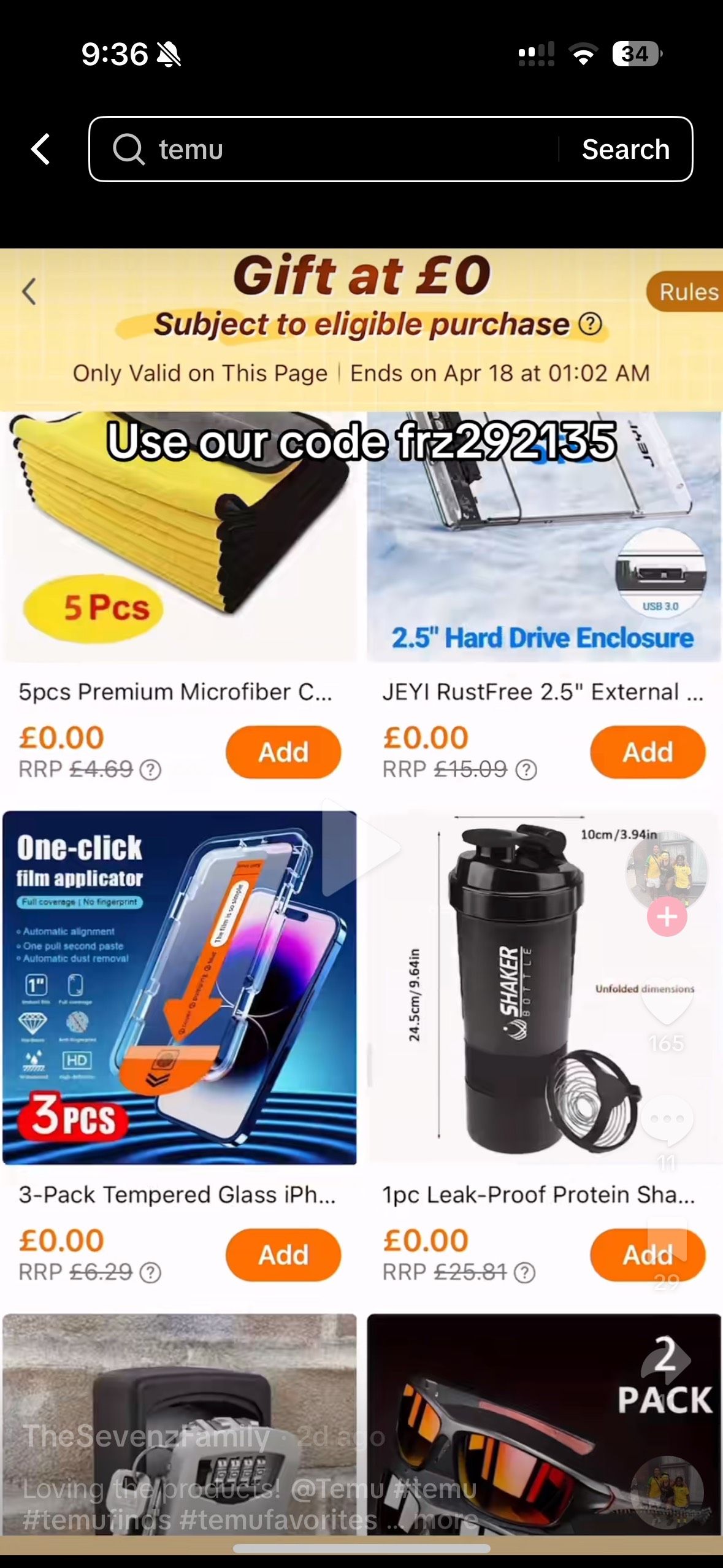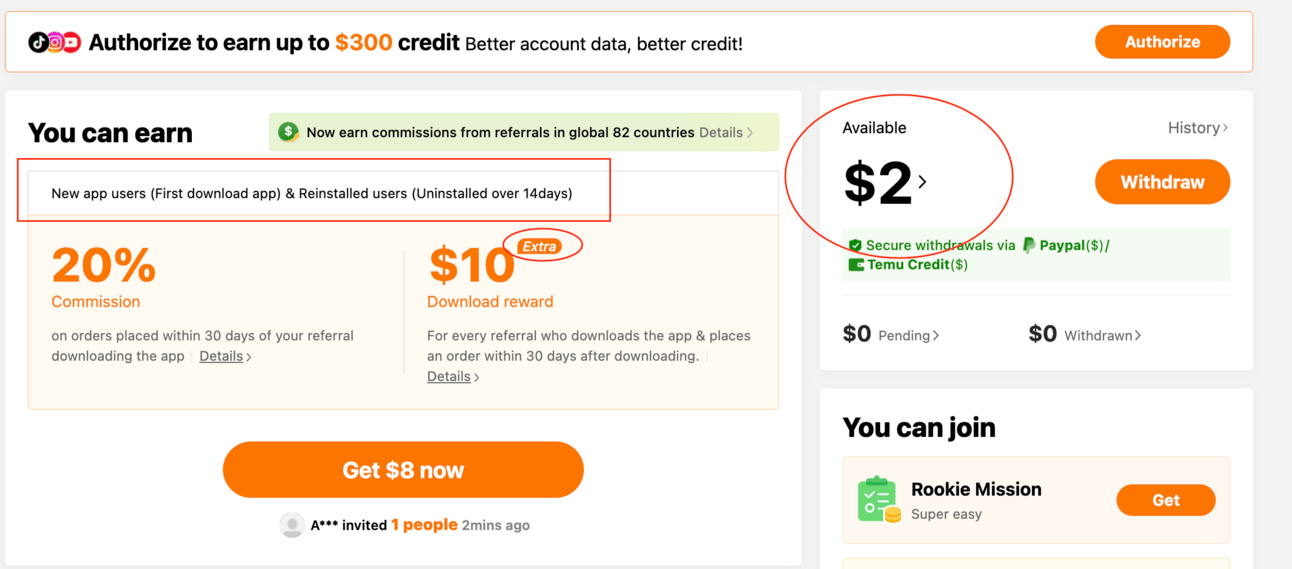- TikTok Shop Playbook
- Posts
- What Temu Gets Right About Affiliate Flywheel (That Most eCom Brands Don't)
What Temu Gets Right About Affiliate Flywheel (That Most eCom Brands Don't)
Let’s be real — Temu has a bad rep in the DTC space
It’s aggressively cheap.
The UX feels like a slot machine.
And it kind of looks like if Wish.com and AliExpress had a baby.
But here’s the thing:
You can dislike the business and still study the strategy.
Because behind the chaos is one of the most impressive viral growth engines in modern eCommerce.
Over the weekend, I went down the rabbit hole of Temu’s affiliate and referral model.
And what I found wasn’t just clever.
It was engineered for scale — built by people who understand game theory, behavioral triggers, and the psychology of sharing.
Let’s break it down.
🧬 The Origins: PDD, Gaming DNA, and Built-In Virality
Temu is owned by PDD Holdings, a Chinese tech giant best known for its mega-app Pinduoduo — a group-buying platform that exploded across China’s lower-tier cities by turning shopping into a social activity.
Rather than just buying for yourself, Pinduoduo encouraged users to:
Share product links in group chats
Invite friends to unlock bigger discounts
Earn rewards by helping others shop
Open the app every day to win coins, coupons, and other daily rewards

The result? A commerce experience that felt more like a game than a transaction.
That’s not by accident.
PDD’s founder, Colin Huang, was a former Google engineer — but more importantly, he came from the online gaming world.
This matters.
Because once you understand that Temu’s DNA is rooted in gaming, not just retail, everything makes sense:
Instant wins
Leaderboards
Referral races
Reward systems
Micro dopamine triggers
Temu’s growth isn’t just about low prices.
It’s about how it activates users to take action.
💸 Instant Reward = Instant Hook
Let’s start with what happens when you join Temu’s affiliate program.
You don’t need to wait for approval. You don’t need to make a sale.
The moment you sign up, you get $2 in cash. Instantly.
Not store credit. Not points. Not coupons. Actual money.

That tiny reward flips your internal script.
Suddenly, you’re not “promoting Temu.” You’re already winning — and the game just started.
Psychologically, this is powerful.
It builds momentum and lowers friction for customers to continue.
The biggest problem with most businesses today? Customers don’t have a reason to come back
But if you give them just one small reason — a reward, a streak bonus, a reminder that they’re progressing — they will.
It doesn’t take much. Just something tangible that makes them feel like they’re already “in.”
How does this apply to product brands?
Here’s an idea:
Reward your affiliates the moment they join — not after they make a sale.
Give them something small but real: a $5 coupon, a limited-edition product sample, a commission boost for their first 24 hours.
It’s not about the dollar amount.
It’s about creating movement.
Give them momentum — and they’ll create it for you in return.
🔁 Real-Time Stats = Motivation Machine
Once inside the platform, the gamification ramps up.
You’re shown live stats like:
“You invited 1 person”
“You earned $2”
“Top affiliate earned $14,815”
Pop-ups showing other users earning in real-time
It feels like being part of a real game, not managing a referral dashboard.
This constant feedback loop — celebrating any action — keeps users engaged, competitive, and motivated.
It’s a classic mobile gaming move: Show progress. Reward effort. Reinforce status

How does this apply to product brands?
1. Show progress, not just payouts
Most affiliate portals are stale. No feedback. No dopamine.
Instead:
Show them how close they are to their next commission/reward tier
Celebrate their first affiliate content, not just their first sale
Display recent conversions or “you’re trending” badges
People want to feel like they’re moving.
Help them see it.
2. Turn customers into micro-influencers
Let every customer create a personalized share link or coupon code.
Then incentivize them with:
A small cash reward
A leaderboard
A free product once they refer 3 friends
You don’t need a massive creator program.
You need 100 customers who want to rep your product because it earns them something — or just makes them look cool for sharing it.
Ok up till this point, everything mentioned before isn’t new but I’m sharing next is done by no other businesses but Temu
Here’s where Temu’s strategy goes from clever to truly viral:
Every customer becomes a distribution partner.
Even if you’re not signed up as an official affiliate, you can generate a free, personalized coupon code that redeems $0 product orders.

You can share that code with friends via text, group chats, TikTok, or Reddit.
The friend gets an insane discount (think “$30 product for $4”)
Biggest flash sales compilation
The sharer earns real money and rewards if that friend signs up and places an order
You’ll even see users dropping their codes in the comment sections of TikTok videos and Reddit — turning every post into a mini referral engine.

It’s not positioned as affiliate marketing — it feels like “hooking your friend up with a crazy deal.”
But behind the scenes, it’s one of the smartest viral growth loops in the game.
Because:
Everyone wants to share a good deal
Everyone likes helping their friends save money
Everyone loves earning something back
It’s a win-win for everyone participating.
This single mechanic creates a self-sustaining flywheel: share in social —> users redeem free gifts and crazy deals —> you earn a reward —> every customer becomes a sharer —> repeat

How This Applies to Product Brands
Let every customer generate a shareable code Just like Temu, give every buyer a personalized coupon code or link they can send to friends.
Offer $5 off for the friend, and $5 back to the original customer
Make it easy to copy, paste, and share anywhere — TikTok, Instagram, Discord, texts
Make the offer feel too good to ignore Temu’s strength is in how ridiculous the discount feels. You can use the same psychology:
“Share this code to give your friend 40% off their first order”
“Refer a friend and unlock free product for both of you”
“Invite 3 friends and get our limited edition item for free”
“Share the code to redeem gifts products for both of you”
People love feeling like insiders. When the deal is that good, it spreads by itself.
You’re not just selling products. You’re creating a social loop that makes your brand sticky, visible, and sharable.
If your product is good — and the reward is meaningful — the flywheel will start spinning on its own.
🔂 The Flywheel in Action
Let’s play it out step-by-step:
A user signs up and gets $2 instantly
They share their personalized coupon link
Their friend clicks and downloads the app to claim the offer
That new user places an order
The original user earns cash
The friend now gets their own shareable code
The cycle repeats
No influencers needed.
No paid ads required.
Just everyday people sharing insane deals with people they trust.
This loop is simple. But at scale? It’s incredibly powerful.

💡 What You Can Steal From Temu’s Playbook
Whether you’re building a TikTok Shop, a Shopify store, or an affiliate program — here are 5 key takeaways you can apply:
1. Reward before the ask
Even a small win upfront (like $2) builds trust and makes people more likely to take the next step.
2. Show progress, not just results
Real-time stats, milestones, and visual progress bars create feedback loops that keep users engaged.
3. Let anyone be a promoter
Don’t gate your program behind “influencer” or “affiliate” tags. Make sharing accessible to every user.
4. Make the offer irresistible
Temu’s deals are extreme. That’s what gets people to share. Don’t be afraid to lead with value bombs to earn long-term growth.
5. Engineer the flywheel
Design your customer journey so that acquisition begets more acquisition. Think viral loops, not funnels.
🧠 Final Thought
You don’t have to love Temu.
You definitely don’t have to copy their business model.
But if you’re in the business of scaling — and you’re not studying how they’ve turned customer sharing into a viral acquisition engine — you’re leaving serious growth on the table.
This is performance marketing without the ad spend.
Affiliate strategy without the overhead.
Virality — but engineered from the inside out.